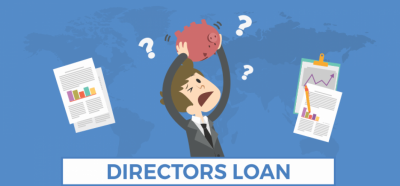Understanding Director’s Loan Accounts
News and Blog
What is a Director’s Loan?
A Director’s Loan Account (“DLA”) is a record of the money borrowed and paid into a company by the director. This money is not classed as a salary, dividend or expense, and can only be taken out by a company director - for example, the director of a company may pay for personal expenses using a company card or company money. Those expenses must be paid back, as the company and its director are separate entities, meaning that company money does not belong to the director. At the end of the financial year, the directors loan account balance is recorded in the balance sheet as either an asset (money owed to the Company by the director) if the loan account is overdrawn, or a liability (money owed to the director by the company) if the account is in credit.
There are no legal restrictions as to the amount of money that the business can lend the director, subject to the appropriate Company Articles and Memorandum of Association however the amount loaned is limited on a practical basis based on how much the company can afford to lend before it begins to generate cash flow issues.
Directors also need to be aware that there are tax implications, both for the company and the directors, if there are overdrawn balances at the end of the financial year.
Lending Your Company Money
Companies do not need to pay corporation tax on money lent to it by a director. The director can choose to charge interest, but this would also be a business expense for the company. If a director chooses to charge interest, this must be reported on the director’s self assessment tax return.
Overdrawn Director’s Loans
Overdrawn director’s loan balances must be noted at the end of the financial year on the company’s tax return. Overdrawn DLAs may be a deterrent to investors and shareholders as if the director is unable to repay the loan this could have a detrimental impact on the company and its cash flow.
While there is no limit on the amount that a director can borrow from a company, to take a loan of £10,000 or more, they should first obtain approval from the company shareholders (although in many cases, the director is also the company’s main or sole shareholder). If the overdrawn loan exceeds £10,000 (at any time throughout the tax year) and the director is paying interest below the recommended rate, the loan is regarded by HMRC as a benefit in kind. This means that the loan is chargeable to tax at a rate of 20% (as of the financial year 2022-2023).
If the DLA is still overdrawn nine months after the company’s accounting period year end, the company may be charged corporation tax at the rate of 32.5% (based on either the end of year balance or the amount outstanding subsequent to the nine months – whichever is lower).
To avoid this, directors can repay their overdrawn loans before the end of the financial year however, they will be unable to retrieve the amount they have just paid into the company’s account for at least 30 days otherwise the company will become liable to corporation tax. This is to prevent ‘Bed and Breakfasting’, where directors temporarily repay their loan to avoid tax penalties, before immediately withdrawing the money with no intention of truly paying back the company.
Loan Accounts and Liquidation
When a company goes into liquidation, the director is responsible for repaying any outstanding balance on the Directors Loan Account. If the director is unable to repay the overdrawn balance back to the company, this will likely impede the dividend received by creditors. The appointed liquidator will have to assess the amount of the overdrawn DLA and seek to realise those funds for the benefit of creditors, which in turn may lead to the director having to seek personal insolvency advice.
The director is not able to use the sale of company assets to repay the overdrawn DLA. As indicated earlier, the company and its director are separate entities so the assets do not belong to the director, even if they were the sole director and shareholder of the Company.
During a liquidation process, directors must prioritise repaying company creditors over themselves, and attempting to repay/reduce a credit balance on a director’s loan ahead of company debts can result in them being disqualified from acting as a director of any company.
If a DLA is in credit at the time of a company going into liquidation, the director can claim as an unsecured creditor and share in any dividend that may paid together with the general body of creditors.
If you would like to discuss directors loan account further please do not hesitate to contact Chris Parkman on 01326 340579, or send an email at help@purnells.co.uk

Posted: 26/02/2023 14:11
